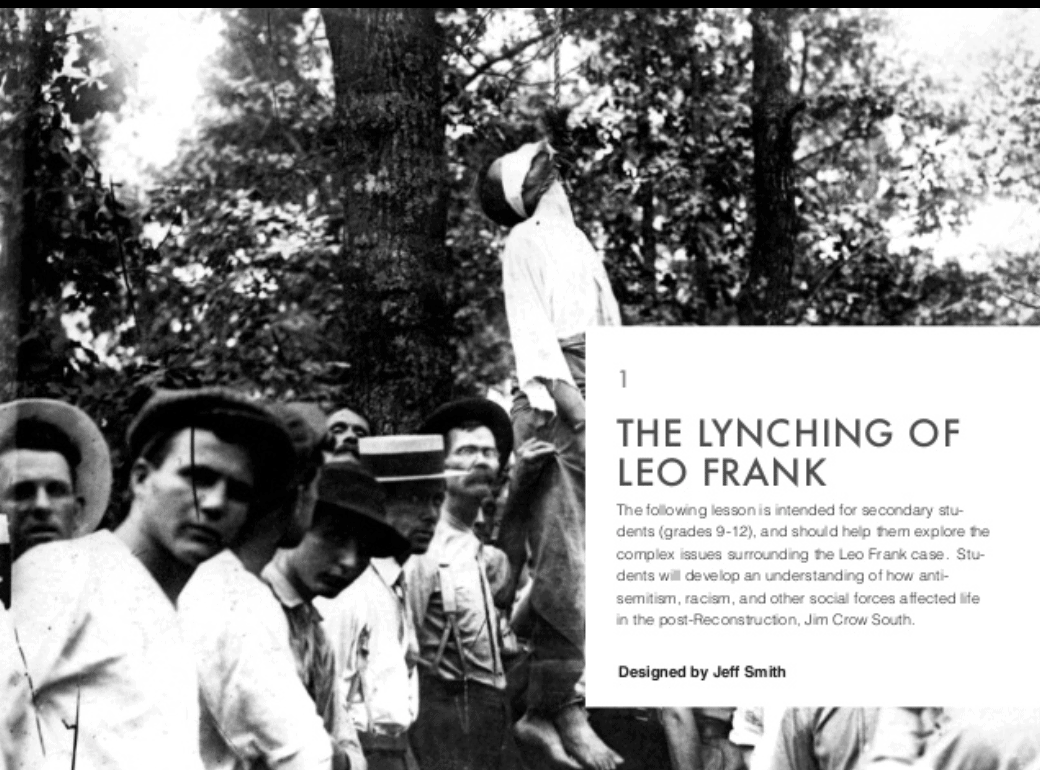
The people of Marietta, GA celebrate the lynching of Leo Frank.
As I began thinking of topics for our document-based lessons, my mind immediately went to a topic with a strong family connection. My great-grandfather, William Smith, was one of the lawyers involved in the trial of Leo Frank. However, this dark chapter in the history of Atlanta, Georgia and the Jim Crow South is heavy material, dealing with racism, bigotry, prejudice and lynching. All are certainly important issues worthy of a lesson, but the incident is not the most light-hearted affair. I thought I might prefer to investigate in-depth a more approachable topic, but my family ties made the subject too attractive to ignore.
I was indeed correct in the difficulty of the material, and, as I dug deeper, ugliness after ugliness bubbled to the surface. The topic also began to touch on a broad range of issues in the South, and focusing my lesson on specific documents and skills became an problem. I decided to focus on media coverage of the event, comparing the coverage of competing local papers and the unseemly journalism that was practiced.
The most frustrating part of my research experience stemmed from the controversial nature of the topic. As I google-searched various people and incidents, I noticed odd websites popping up. I learned a bit more about these websites, and apparently the lynching of Leo Frank continues to be a linchpin topic for hate groups to this day. There are several phony educational sites, published by hate groups, detailing “evidence” of Frank’s guilt and the conspiracies working to have him pardoned. Unfortunately, these sites seemed to have hi-definition copies of famous photographs from the case, and it proved difficult sifting through the fake sights to obtain quality documents from reputable sources.
Overall, I felt the iBooks DBQ project was the most meaningful piece of work I produced in the MAT program this semester. Not only did I learn more about my own family’s history, but I also obtained a useful new tech skill. In fact, in my spring placement I’ve decided to have my students use iBooks author to do a project of their own, presenting a story from a revolutionary period in the form of a children’s book. The kids will create iBook chapters, assemble them into a collection, and present their stories to an elementary school class. Their work will then be made available for the whole school to peruse, and for next year’s 7th graders to refer to when making their own book.

